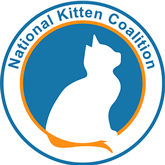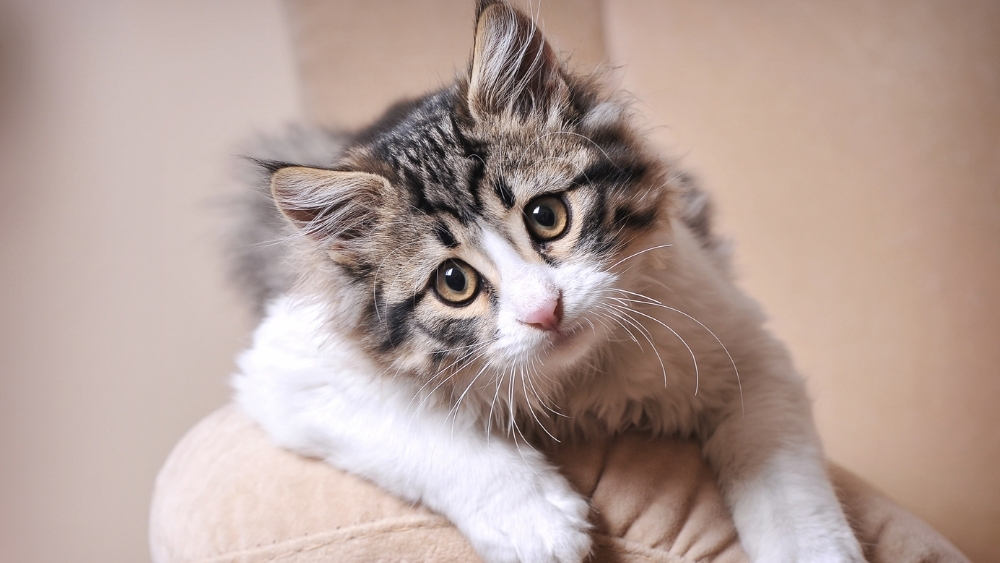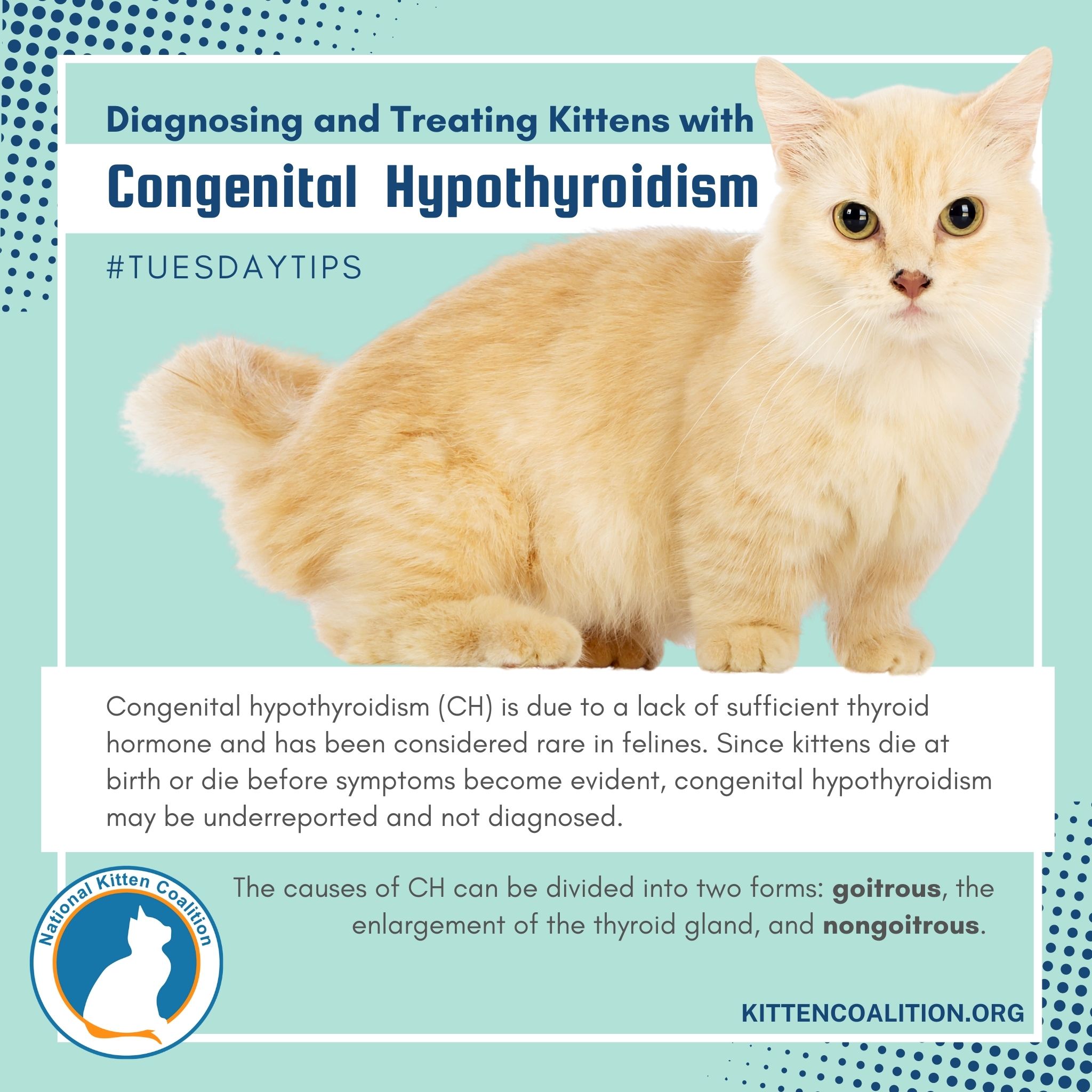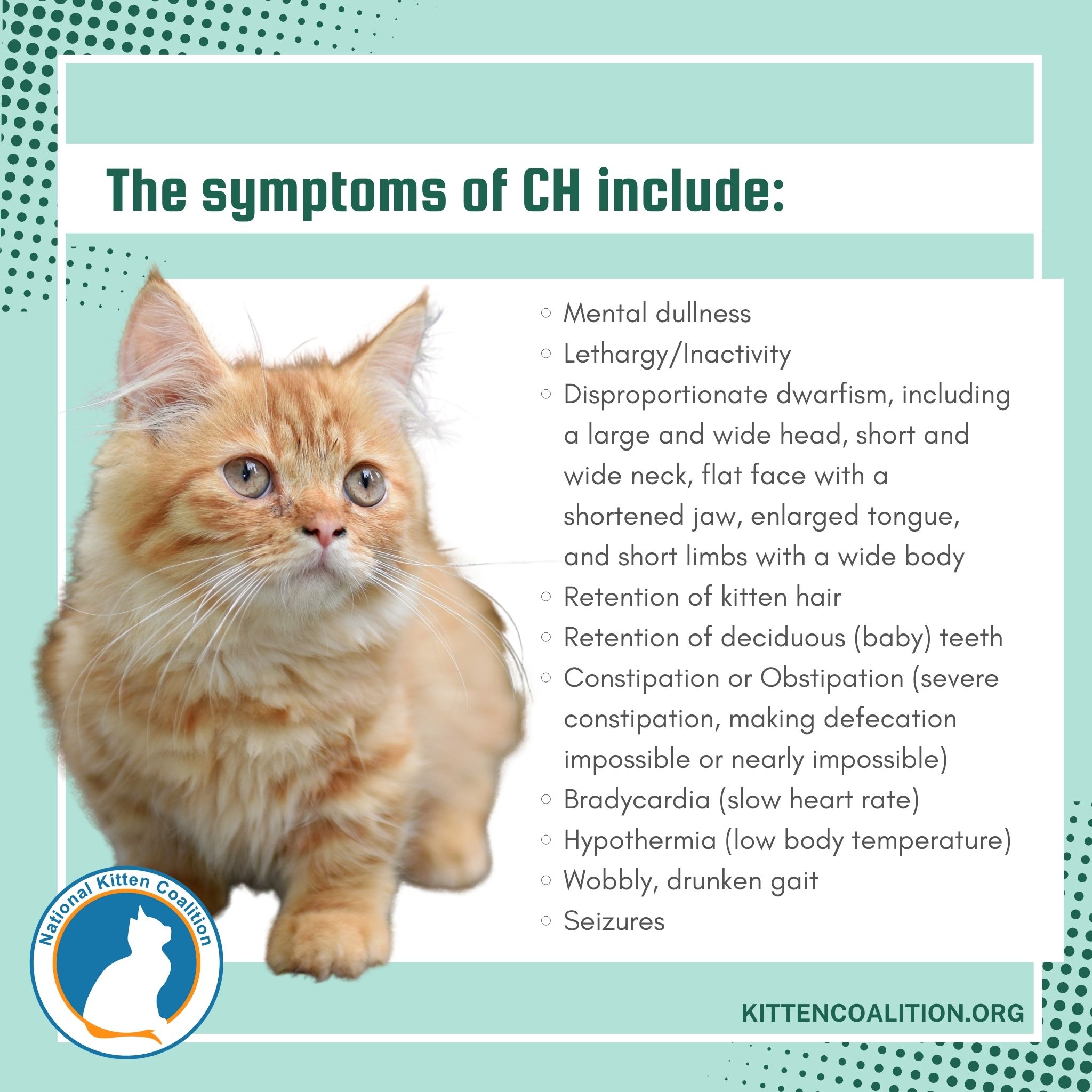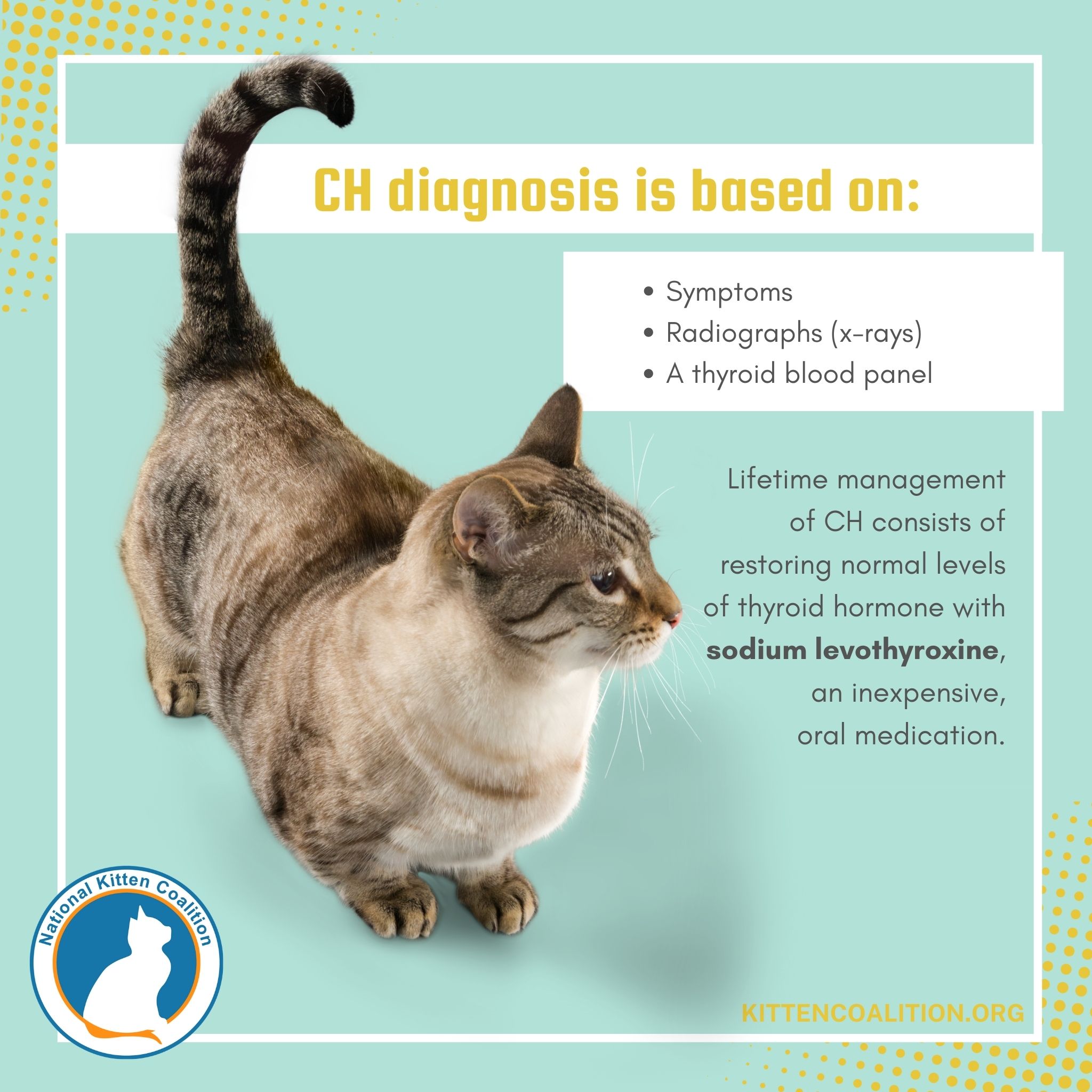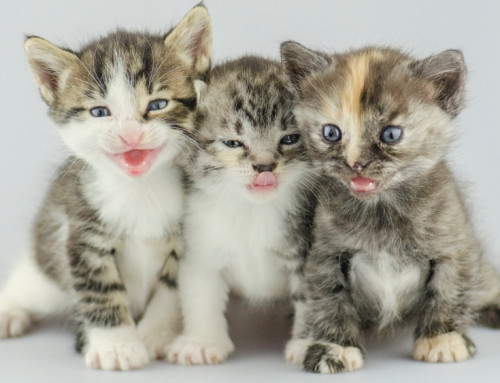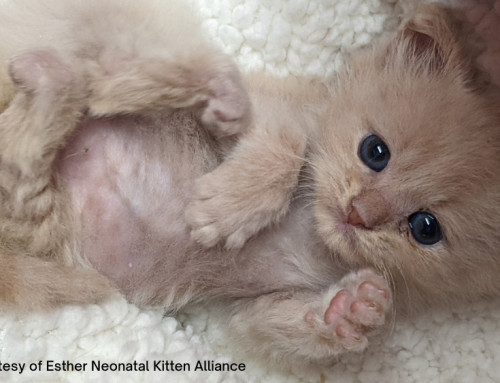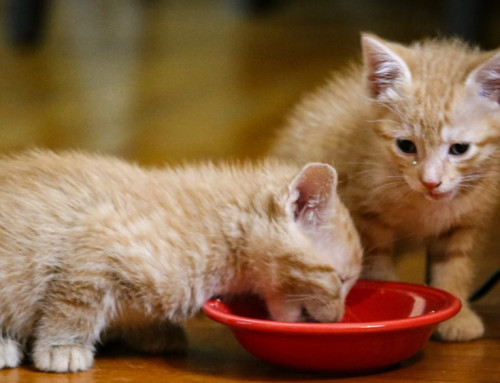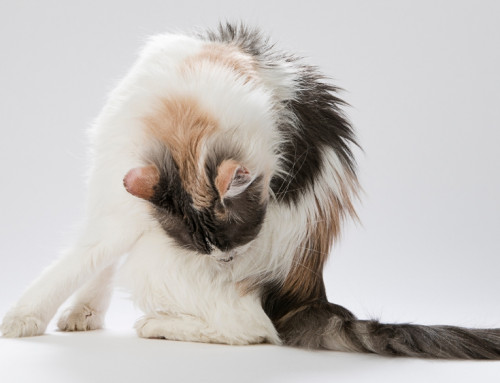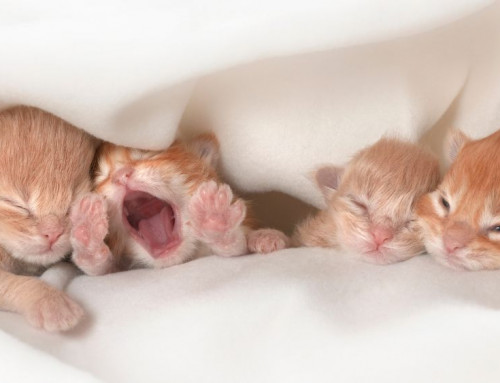Share this resource or email it to a friend!
Congenital hypothyroidism (lack of sufficient thyroid hormone in the body, which is important for the development of the nervous and skeletal systems) has been considered a rare feline disorder. However, it may be underreported and not diagnosed since kittens appear normal but die at birth or die as juveniles before symptoms ever become evident.
The causes of congenital hypothyroidism (CH) can be divided into two forms: goitrous, the enlargement of the thyroid gland, and nongoitrous. Goitrous CH is likely caused by an inherited defect or dietary issues with iodine in the pregnant queen or newborn kitten. A goiter may not be apparent until 6 months of age. Nongoitrous CH is usually caused by incomplete thyroid organ development.
Kittens with CH can display the following symptoms:
- Mental dullness
- Lethargy/Inactivity
- Disproportionate dwarfism, including a large and wide head, short and wide neck, flat face with shortened jaw, enlarged tongue and short limbs with a wide body
- Retention of kitten hair, with the result that the coat remains soft and fluffy
- Retention of deciduous (baby) teeth
- Constipation or Obstipation (severe constipation, making defecation impossible or nearly impossible)
- Bradycardia (slow heart rate)
- Hypothermia (low body temperature)
- Wobbly, drunken gait
- Seizures
Diagnosis of CH is based on: symptoms; radiographs, which may reveal skeletal changes; and, most importantly, a thyroid blood panel consisting of multiple measurements, including: Total T4, Free T4, T3 and TSH (thyroid-stimulating hormone).
Treatment for hypothyroidism in kittens is aimed at restoring normal blood levels of thyroid hormone. Kittens with CH will have to be on medication for life. The medication, sodium levothyroxine, is an inexpensive, oral thyroid medication supplement. Some cats may also require a second medication, called synthetic sodium liothyronine (L-T3). Kittens with hypothyroidism should be fed a high-quality diet as recommended by their veterinarian.
The prognosis for CH kittens is unknown since not much research currently exists. An individual’s survival depends on the severity of changes in the skeleton and nervous system. Early diagnosis and treatment can lead to a better outcome. CH should be considered a possible differential diagnosis in kittens with retarded growth and/or clinical features of disproportionate dwarfism.
In order to establish normal reference intervals for kittens at 4 and 8 weeks of age, and to establish treatment guidelines for managing kittens with CH, the University of California, Davis, School of Veterinary Medicine has launched a new clinical trial on hypothyroidism.
